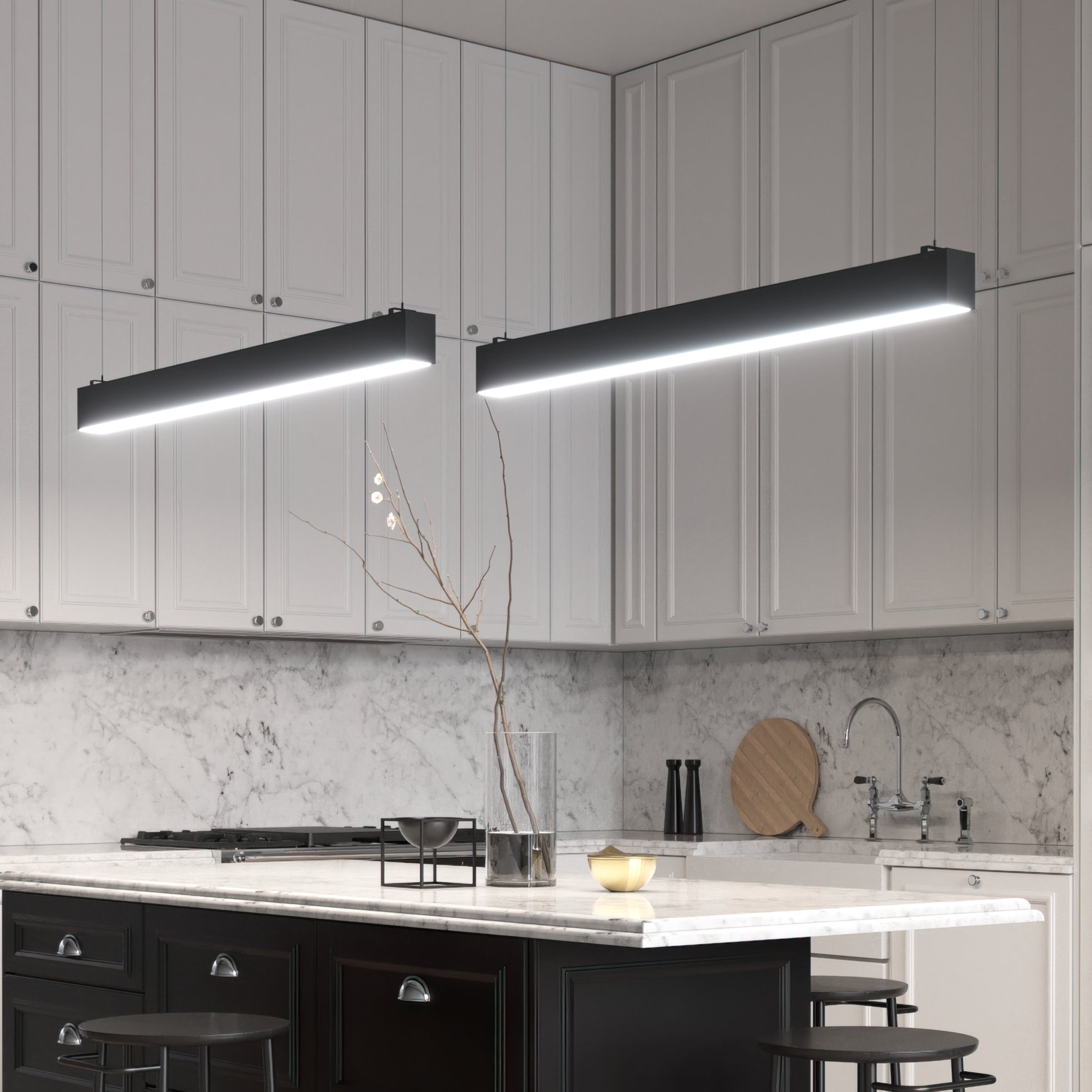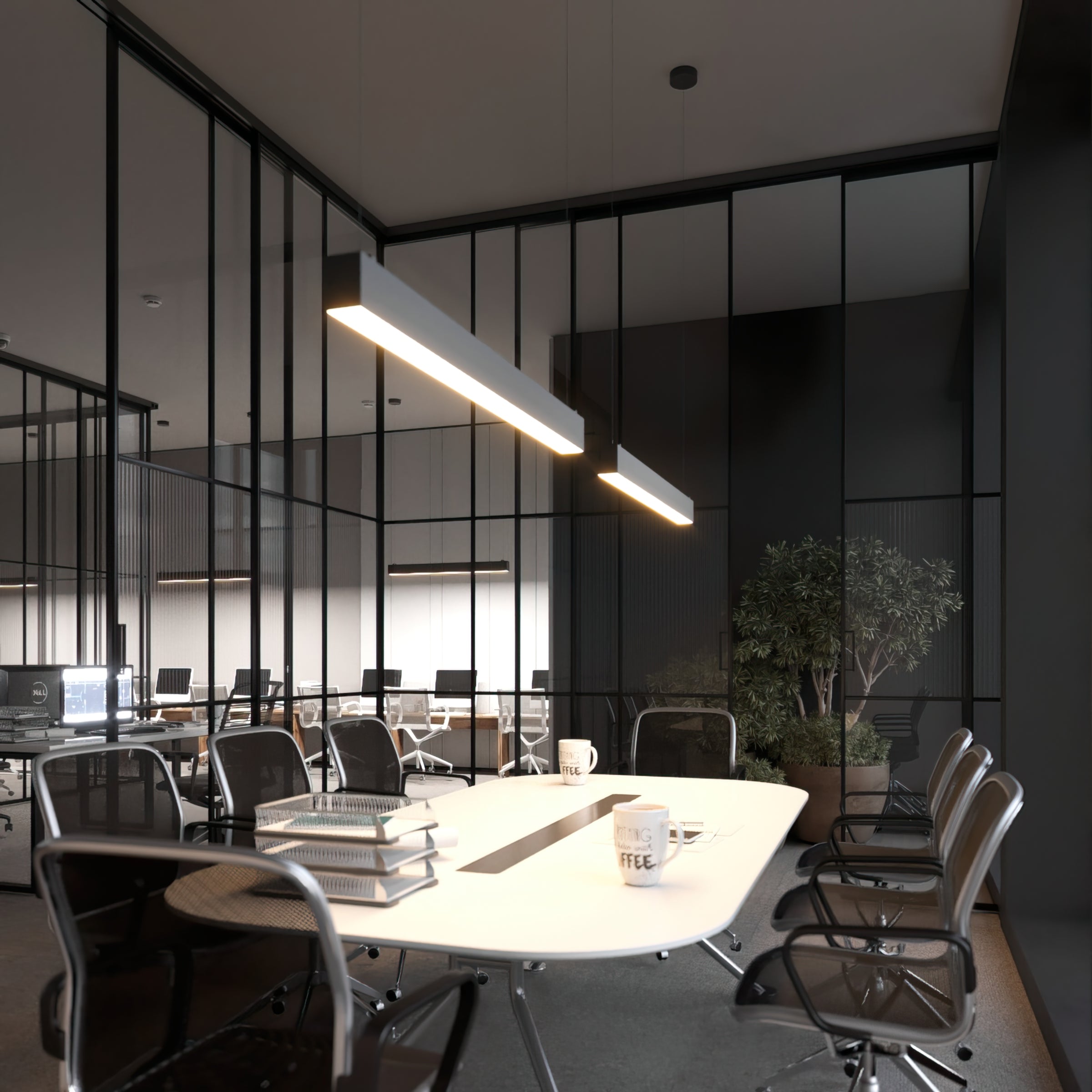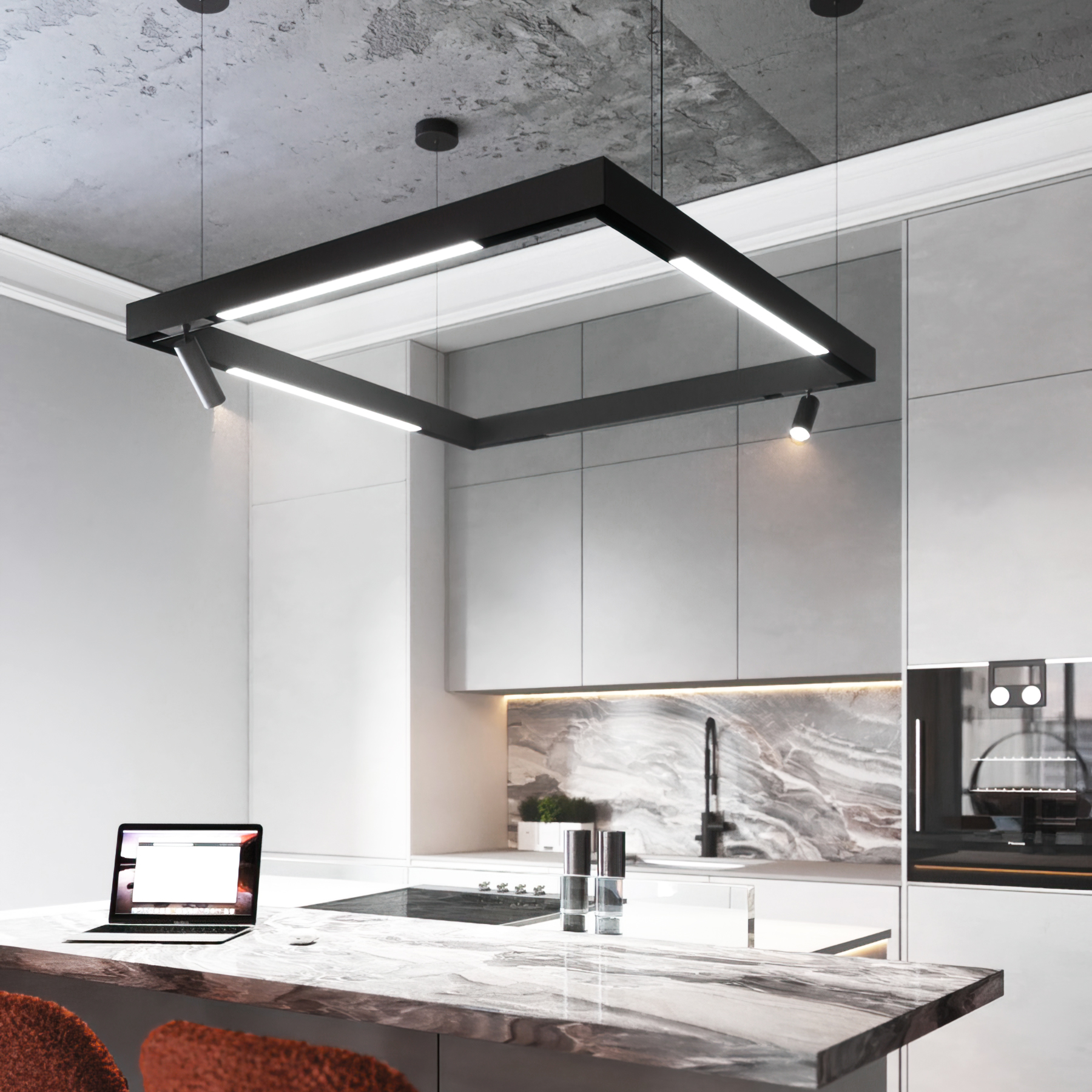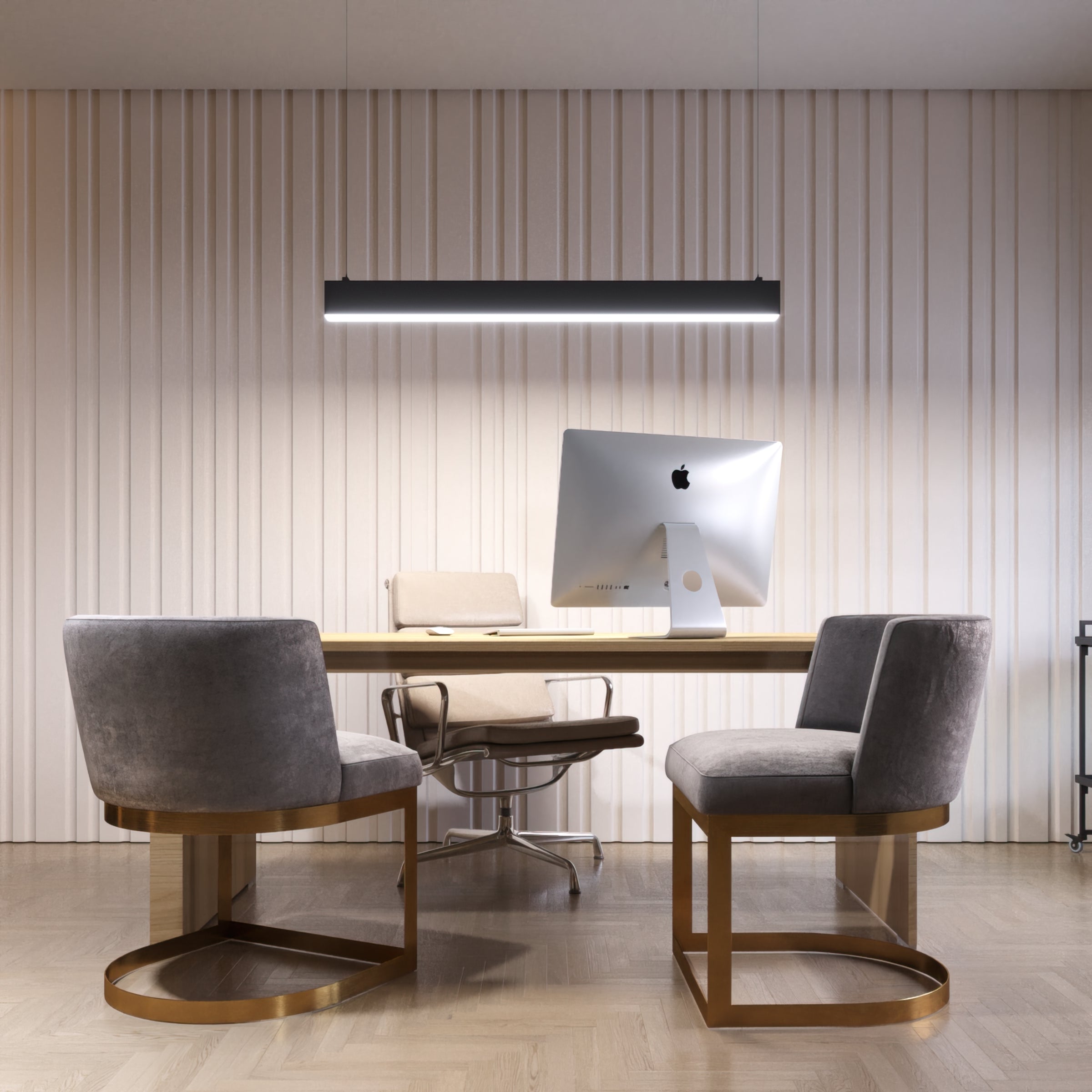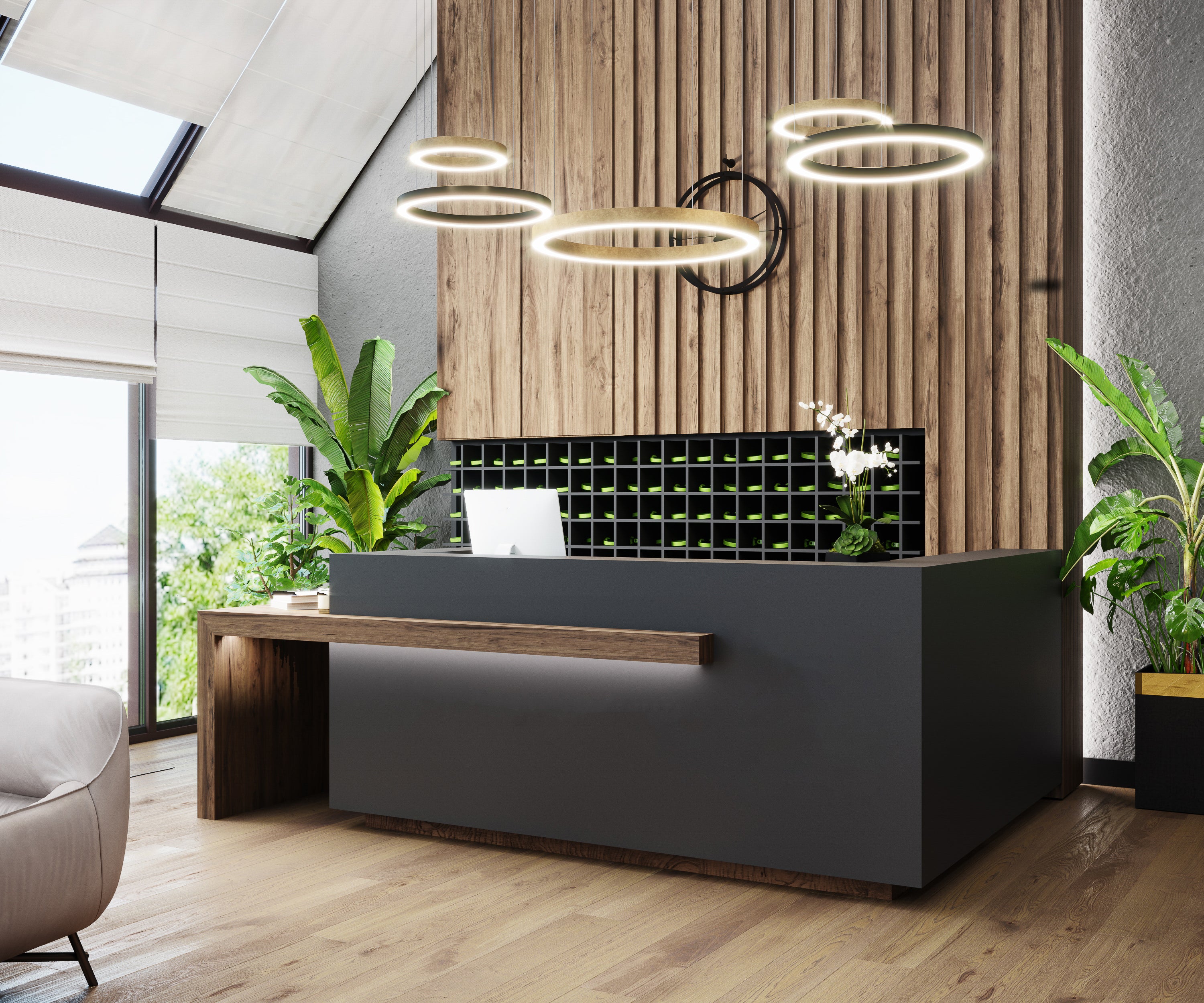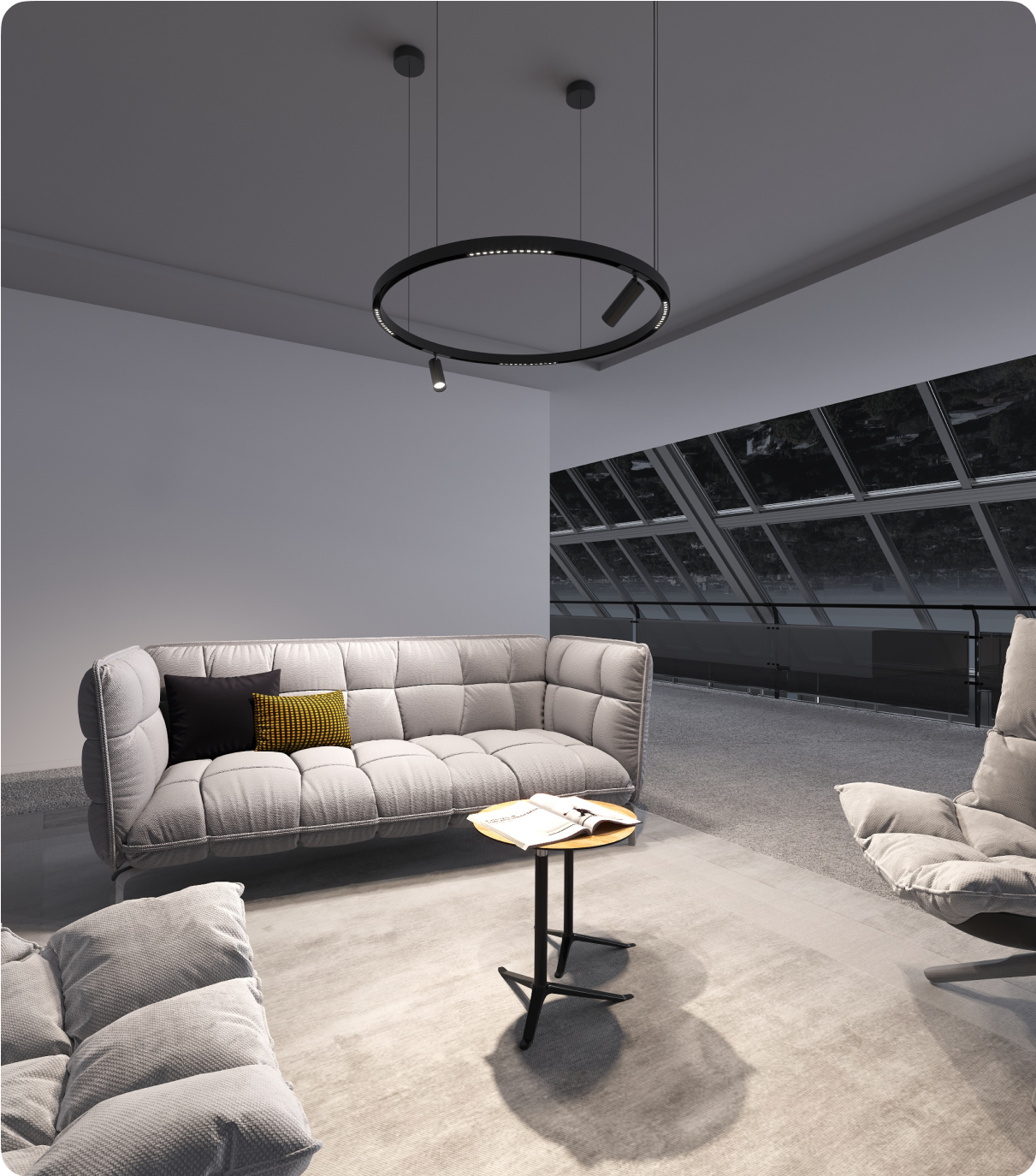Lighting is an essential element of architectural design to create balance and harmony within a space. It has the power to completely change the atmosphere of a room, making it feel cozy or airy, depending on how it is used. Yet many don't fully understand the differences between direct and indirect light and how they can enhance a space.
Two primary types of lighting used in architectural design are direct and indirect light. Direct lighting comes from a single source, such as a spotlight or window, and creates strong shadows that create drama and interest within a space. This light is often used to highlight artwork or other focal points within the room.
On the other hand, indirect lighting does not come from a single source. Instead, it is diffused through various objects and surfaces, such as walls or ceilings. This type of light helps to create an even balance throughout the space, with no sharp shadows or highlights. It is also often used to create a warm and inviting atmosphere.
So how does each type of light impact the design of a space? And how can you decide which option is best for your project? In this guide to direct and indirect light in architectural design, we will discuss the benefits of each type of lighting and how they can enhance the overall look and feel of a room.
What is Direct Light?
The first type of lighting to consider is direct light. This comes from a single source, often a spotlight or window that allows sunlight into the space. This type of lighting creates strong shadows and highlights within the room, which can be used to create visual interest and drama. In commercial spaces, this type of lighting is often used in a “spotlight” fashion to draw attention to specific areas or objects.
Some of the most popular direct lighting fixtures include:
Linear LED Fixtures
A linear LED fixture is a long, slim light panel that can create a spotlight or direct light in a room. This is perfect for highlighting the space's artwork, furniture, or other focal points. In commercial applications, direct linear pendant lighting can be used for task lighting or to create an interesting visual effect.

Round Ceiling LED Fixtures
If you want to give your room a more dramatic look, consider using round ceiling LED fixtures. With a rounded shape, these fixtures provide direct light that can be used to shine a focused light in a broader area. They are perfect for adding drama and texture to a space, making them ideal for commercial or retail applications. For example, a direct pendant lighting option can illuminate merchandise or artwork.

Magnetic Track LED Fixtures
An increasingly popular option for direct light is a magnetic track LED fixture. This type of lighting uses powerful magnets to attach and reposition lights, allowing you to create interesting patterns or direct light in specific areas within the room. Track lighting is perfect for task lighting, as it allows you to easily adjust the light's angle for maximum efficiency. It also creates an interesting effect that can draw attention to certain areas of the space.

Advantages Of Direct Lighting Fixtures
Direct lighting is best used to brighten up specific areas or draw attention to certain objects within a room.
It’s perfect for commercial and retail spaces, as it can shine light strategically while creating enough shadow to add texture and dimension to the space. Additionally, many direct lighting fixtures are adjustable and can be used in various ways, allowing you to create the exact look you want for your project.
Direct lighting reduces your need for additional fixtures, as a single source can provide enough light for the entire space. Whether you need a spot illuminated within a showroom or want to brighten up a lobby, direct lighting can offer greater control of lighting levels without washing out the look of the room.
When to Use Direct LED Lighting
When choosing to invest in direct LED lighting, it is important to consider the type of look that you are trying to create. Direct lighting fixtures are typically best suited for contemporary and modern spaces, as they provide greater control over the overall look and feel of the space. They also highlight artwork or other focal points within a room.
When used strategically, direct lighting can create a dramatic atmosphere that is both stylish and inviting. For instance, a series of wall-mounted LED fixtures within an office can be used to create a sleek and modern look. Or for retail spaces, focused spotlights can highlight certain products and draw the customer’s attention.
In other locations, such as museums or galleries, direct lighting can create powerful visual statements that draw attention to specific pieces. Retail and hospitality spaces can also benefit from direct LED lighting, as it helps to create a dynamic atmosphere that encourages people to explore or guide them to certain areas.

Understanding each space's purpose and the atmosphere you are trying to create is key to choosing the right lighting fixtures. And by using LED, you can be sure that you are getting the most energy-efficient and sustainable option without compromising on style.
What is Indirect Light?
If direct light seeks to highlight some aspects within a room, indirect light is all about spreading light evenly throughout a space. This can be accomplished through natural light from windows or by using more prominent luminaries like pendant lights and chandeliers.
Indirect ceiling lighting has a softer, warmer feel than direct light and is excellent for creating a comfortable atmosphere that encourages relaxation. This type of lighting also helps to reduce glare and shadows within an interior space, which makes it ideal for commercial locations such as restaurants, bars, and cafes.
Common indirect lighting fixtures include:
Bi-Directional Linear LED Fixtures
Linear LED fixtures designed for indirect lighting can provide a consistent, low-glare light that fills the room evenly. Indirect linear pendant lighting offers a modern look that adds a touch of sophistication to any interior space. And wall-mounted downlights can provide the perfect illumination in an office or retail environment while creating a sense of warmth and comfort.

Bi-Directional Round LED Fixtures
Like linear LED fixtures, round LED fixtures can provide a soft glow that fills the space evenly. When positioned correctly, these fixtures can create a visually inspiring atmosphere without overpowering other elements in the room. Consider use in displays, museums, and galleries.

LED Strips and Profiles
Strips and profiles create a subtle glow that can make a space feel more inviting. With these lighting solutions, you can add warmth and texture to a room without drawing too much attention from the overall design.
Wall grazing (a.k.a wall washers) is a popular technique that uses indirect LED lighting strips or profiles to create an ambient atmosphere by subtly illuminating the walls and surfaces of a room. This type of lighting can be used in commercial spaces, hospitality venues, and other public areas.

Track LED Fixtures
Track LED fixtures are the way to go if you need to brighten up a larger area. These lighting solutions can direct light in multiple directions and create a powerful atmosphere without compromising on the style that indirect lights offer.
Wall washing can also be achieved with linear track fixtures. These fixtures use a combination of direct and indirect light to create an even brightness across a large surface area. By combining direct and indirect ceiling light, wall washing creates a dynamic effect that helps to bring out the textures and colors of the walls.

Advantages Of Indirect Lighting Fixtures
Within commercial buildings, indirect lighting offers numerous benefits - from creating a more welcoming atmosphere to enhancing safety and security via better visibility.
From a design standpoint, indirect ceiling LED light fixtures aid in creating a sense of warmth which helps to draw people’s attention away from common distractions while providing a pleasant illumination that doesn't strain the eyes.
In hospitality settings, indirect lighting is excellent for creating an ambiance that encourages guests to stay longer. And its low-glare properties mean it won’t cause discomfort or distraction in an office environment. In locations such as gyms and yoga studios, indirect lighting can be used to create a relaxing atmosphere while giving plenty of light to support the activity taking place.
When to Use Indirect LED Lighting
When should you consider using indirect LED lighting fixtures? The answer depends on the atmosphere that you are trying to create.
Are you looking to utilize indirect lighting to create a warm, inviting atmosphere? Then you should consider LED strips and profiles or bi-directional round LED fixtures. Do you need to brighten up a larger area without compromising on style? Then try using track LED fixtures for wall washing and areas where directional lighting is needed.
You can also use indirect LED lighting for decorative and accent purposes. Wall grazing and linear track fixtures can highlight a room's artwork, architectural details, or other focal points. For instance, curved LED fixtures can create a visually stunning statement piece in any space.

Because it's such a versatile option, indirect LED lighting can be used in many different contexts. By combining it with direct lighting, you can create a space that is both functional and pleasing to the eye. With the right fixtures, you can easily achieve the desired atmosphere while contributing to a more sustainable lifestyle.
Combination of Direct and Indirect Light
Ultimately, it isn't a question of which type of lighting is better between direct and indirect light. The two types can often combine to create a balanced atmosphere that serves both its aesthetic and practical purposes.
You can create an aesthetically pleasing environment by using direct lighting fixtures to increase visibility within certain areas while also incorporating indirect fixtures to reduce shadows and glare. For instance, in an office space, you could use direct lighting fixtures to provide an even spread of light over the desk area while also using indirect lighting to create a warm and inviting atmosphere.
Or, within retail space, you could use track LED fixtures to highlight certain displays while incorporating wall washers or recessed fixtures to create an even spread of light throughout the entire space. Combining the two types of light can create a balanced, aesthetically pleasing and practical atmosphere.
When using direct and indirect lighting fixtures, avoid creating hotspots and overly bright areas. When you overlap the two types of lighting, you can create a balanced, aesthetically pleasing and practical atmosphere.

